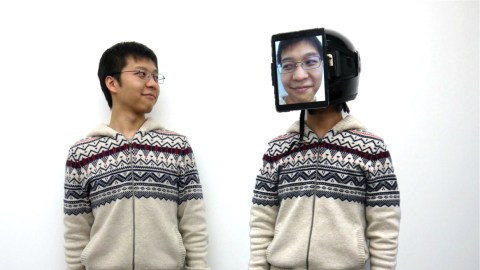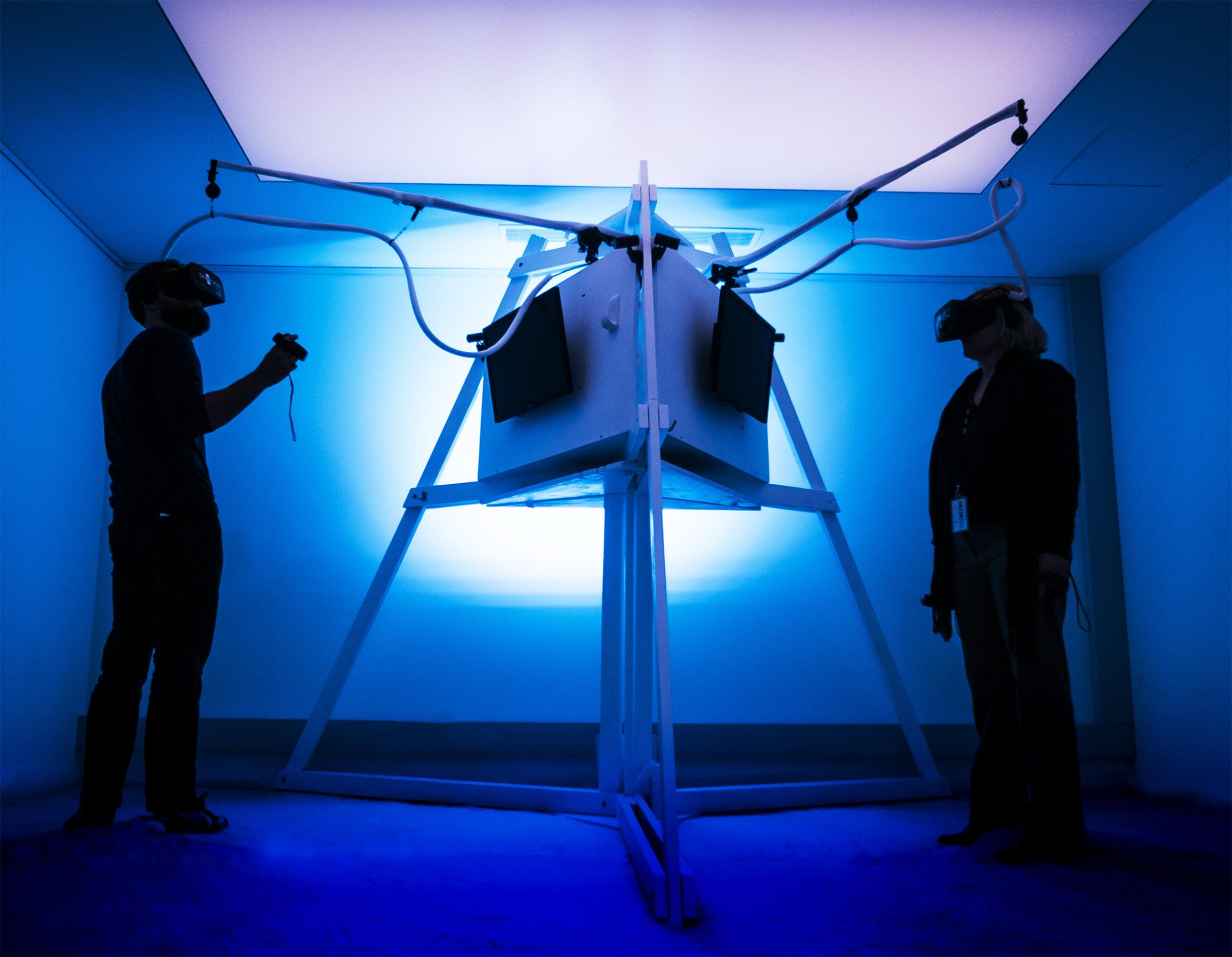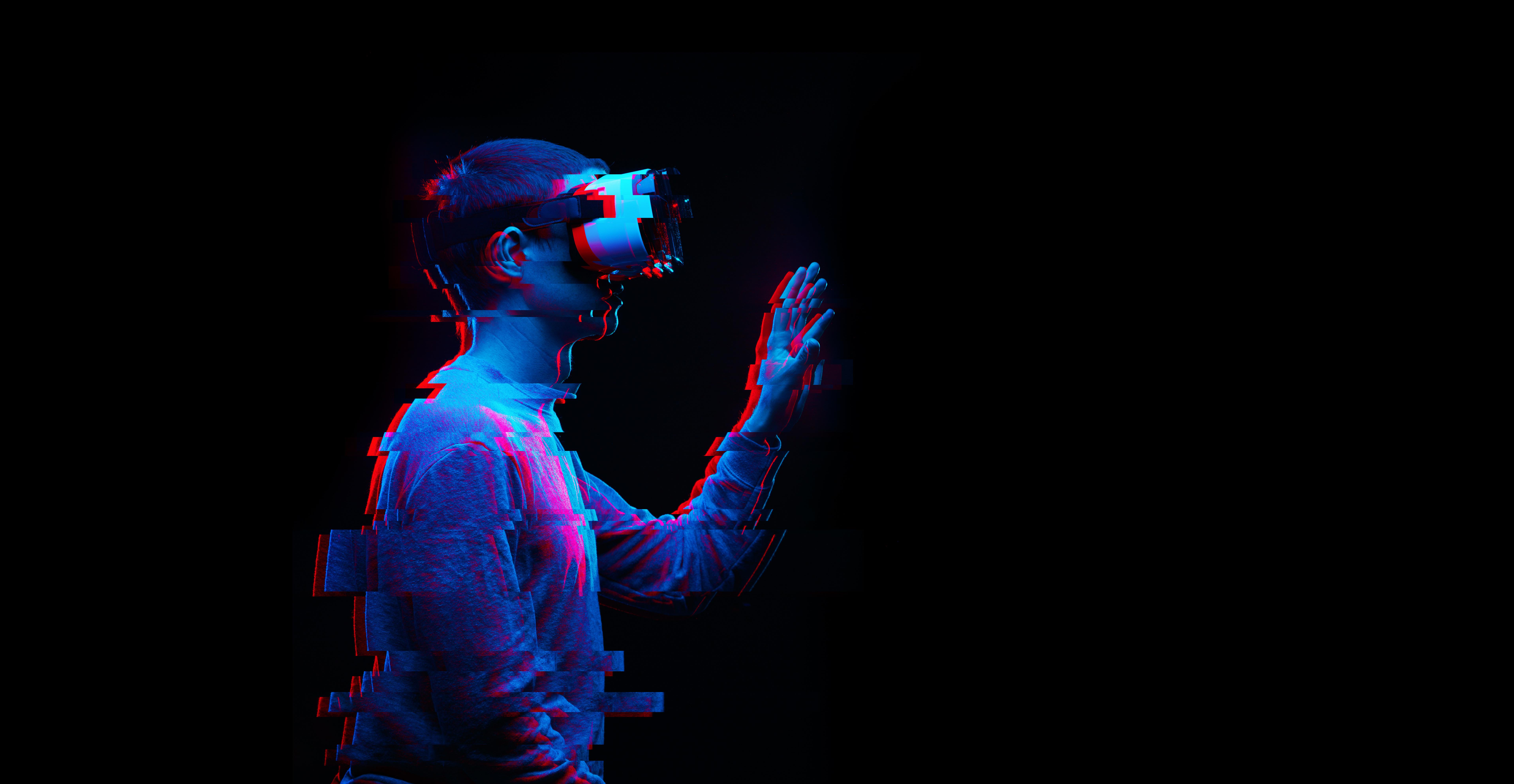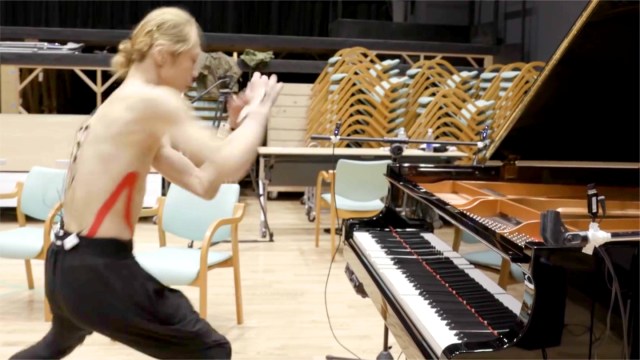‘Human Uber’ lets you pay a stranger to live your life for you

The “Human Uber” could soon hit the gig economy in a big way. And though you may assume that means strangers will soon be paying each other for piggyback rides, rest assured, the reality is somehow stranger.
ChameleonMask hopes to provide people with human surrogates who would interact with the real world on the customer’s behalf. To do this, each surrogate would wear a screen on their head that displays the customer’s face and plays the customer’s voice. The service would theoretically allow you to attend parties and other social functions from the comfort of your bed, achieving something known as telepresence, while you give directions to your surrogate — even so far as telling them what to wear.
If the technology sounds complex, it probably shouldn’t: ChameleonMask seems little more complicated than taping an iPad to your broke friend’s forehead, switching on FaceTime, and then paying him to attend a work party on your behalf while you try to act like it’s all normal, presumably by ordering your surrogate to strike a nonchalant pose.
ChameleonMask creator Jun Rekimoto, a Japanese AR/VR researcher affiliated with Sony, showed off his new tool at At MIT Tech Review’s EmTech (the em for emerging) conference in Singapore last week. He reportedly called it “surprisingly natural.”
“Human Uber,” developed in Japan, provides a way to attend events remotely using another person’s body. “It’s surprisingly natural” says its inventor, Jin Rekimoto of Sony #emtechasiapic.twitter.com/WZHPVcZ6M0
— will knight (@willknight) January 30, 2018
In the past, telepresence technologies have used robots as surrogates. But Rekimoto claims that using human surrogates makes for a better experience, and “also eliminates many difficulties of teleoperated robots wandering in the environment.”
Still, Rekimoto’s service isn’t exactly brand new. The writers of Arrested Development came up with a very similar idea more than a decade ago in episodes where a man on house arrest hired a “surrogate” who wore an earpiece and webcam so he could be the man’s stand-in for the real world.
Who knows whether ChameleonMask will catch on or not. But considering the success of Postmates, Amazon, and Netflix, it makes sense that there should be a service that automates what these companies are already making less and less necessary: leaving the house.





